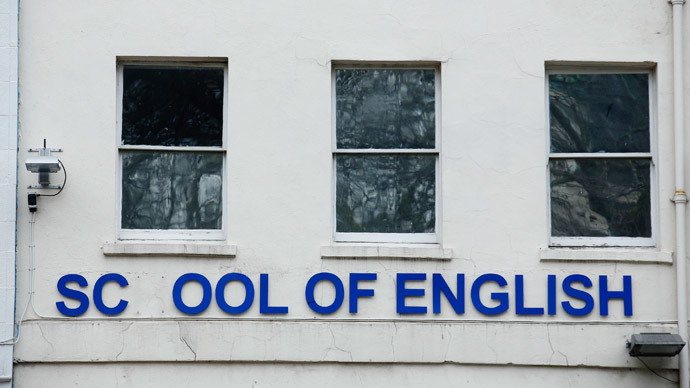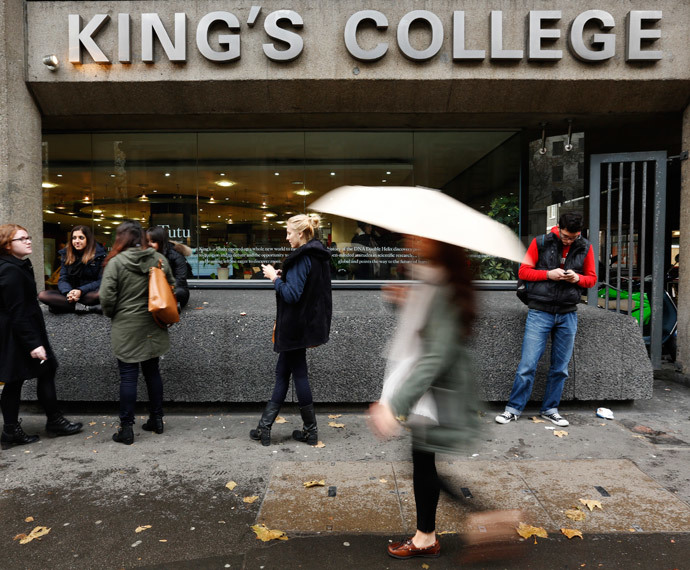'Scarce' UK education: How to encourage incompetence

It was with some amusement that I read Toby Young’s article on reforming the British education system in The Daily Telegraph last week.
According to Mr. Young (author of “How to Lose Friends and Alienate People”) the Labour Party’s plans to push for compulsory Math and English courses even for those secondary students who consistently pass them is “not a very sensible use of scarce resources” because it will obligate schools “to employ additional staff whose soul [sic] purpose will be to teach children who are already doing well.”
I briefly contemplated whether I should be taking this as installation art of the deeply ironic variety, or as sort of heartfelt reference to the karmic intentions of those who devote their lives to improved grammar, before finally chalking it up to the author’s own unthinking indifference. A week later, the error remains, The Telegraph having apparently decided not to waste “scarce resources” on a correction.
Contrary to Mr. Young, I view teaching promising students as an investment rather than a waste (or perhaps I should say, in the spirit of things, “waist”) of time. Math and English both revolve around a grasp of systemic logic and reasoned problem-solving. Not only are these transferable skills, they form the basis of all other forms of intellectual learning and allow whoever possesses them to participate effectively in reasoned public discourse. Students who already excel at these subjects are most likely to undertake university studies where mastery of these disciplines is essential and where they will compete with students who have benefitted from more luxurious forms of primary and secondary education. After all, the misleadingly named British “public schools” do not suffer from “scarce resources” and their students are encouraged to pursue top careers supported by all of the bells and whistles that money can buy. Conversely, children in actual public or “state-funded” schools are essentially being told that so long as their academic achievements suffice for the duties of peasant life, no one will force them to excel.

Horribly, the economic scarcity these low expectations are predicated on is a myth – if the British government could be bothered to collect the 35 billion pounds of taxes that wealthy individuals and companies avoid each and every year (nearly 10 percent of the total national tax burden), perhaps resources would not be too “scarce” to prevent us teaching children from less affluent households how to read and write to a professional – as opposed to a merely adequate – standard. Instead, wealthy individuals – whose businesses benefit most from tax-funded state infrastructure – are essentially allowed to opt out of the system, avoiding taxes and using some of that money to pay up to 30,000 pounds per year to send each of their children to private schools where they can escape the intellectual poverty their very avarice has caused. For these reasons, I do not buy the “we cannot afford to teach children to a higher standard” line.
Ironically enough, while this “scarcity” line seeks to curb expectations of quality education (both Conservative and Labour plans for reform are fairly bottom barrel, with neither party attacking the entrenched class divisions which characterize British education), both governments and businesses in the English-speaking world have demanded “education” in greater and greater quantities. There are really only two ways to meet government and corporate calls for ever-increasing numbers of university graduates: a) by raising the academic skills of students who a generation ago would not have been admitted to a university (an expensive, time-consuming and often acrimonious process), or b) by lowering standards so that more students can meet academic expectations with less effort. Considering that neither governments nor businesses are willing to adequately fund their own demands for a mass migration from blue- to white-collar jobs (a policy for the most part ill-considered and unnecessary in itself, considering that skilled trade remains a perfectly viable and vastly underrated career option), it should come as no surprise that we’ve settled for option b), which means that a lot of kids end up with worthless degrees and inadequate skills, having performed the motions but not the substance of acquiring an education from third-level institutions that promise fun and easy learning when the truth is that learning is not easy and often more fun in hindsight than at the time it was actually ongoing.

This is compounded by the fact that many students do not recognize the value of obtaining the “hard skills” of academic achievement (writing, reasoning, discipline, structure, attention to detail, logic, math). This is a frustrating mindset, but the blame for it cannot be laid entirely at their door.
When I started university, it was an article of faith that the higher the academic achievement, the greater one’s middle-class prosperity would eventually be. Word hadn’t yet got around that we would be poorer than our less educated parents no matter what we did, and less successful than our peers who were born into wealthier, connected families. Where I was told that the path to success involved working hard, keeping sober and maintaining a humble attitude while contributing to society, kids barely 10 years younger than I am placate themselves by parroting empty corporate aphorisms: “It’s who you know, not what you know”; “You have to be able to sell yourself”; or “The important thing is success – it doesn’t matter how or why you got there.”
It’s a hollow and undignified mindset that replaces personal achievement with endless efforts to flatter and please. This way of thinking is not so much a reflection on students’ moral integrity, as a reflection of the world in which they have been told they live. To give but one example of many, a 2012 article in Forbes magazine advised anyone seeking promotion to take advice from “pimps, prostitutes and porn stars” on how to sell themselves better in the workplace by separating “you as person from you as a product”. This type of messaging falls on fertile ground when delivered to young people who are desperate for material success of any sort, because they are otherwise looking into an abysmal hole of contract work, poor wages and crippling student debt.
Perhaps the most ironic part of all is that the crackdown on basic skills (demanded by the same parties who have insisted on mass third-level education without providing the means to support it) is supposed to be delivered by a group of people (teachers and lecturers) who don’t make very good money or enjoy much appreciation in society. In fact, in a final wry twist, lecturers – who have a higher level of education – are often worse off financially and enjoy less job security than secondary school teachers. Unsurprisingly, students show little interest in listening to how mastering the semi-colon managed to land you your poorly remunerated, high-stress role, when they’ve been told that in the worst case scenario they can always just twerk their way to the top. In short: they’ve fully on-boarded the mindset that success is not about what you can do, it’s about what you can get.
As far as they are concerned, the writing’s on the wall – even if they have to use their fingers to read it.
The statements, views and opinions expressed in this column are solely those of the author and do not necessarily represent those of RT.
The statements, views and opinions expressed in this column are solely those of the author and do not necessarily represent those of RT.













